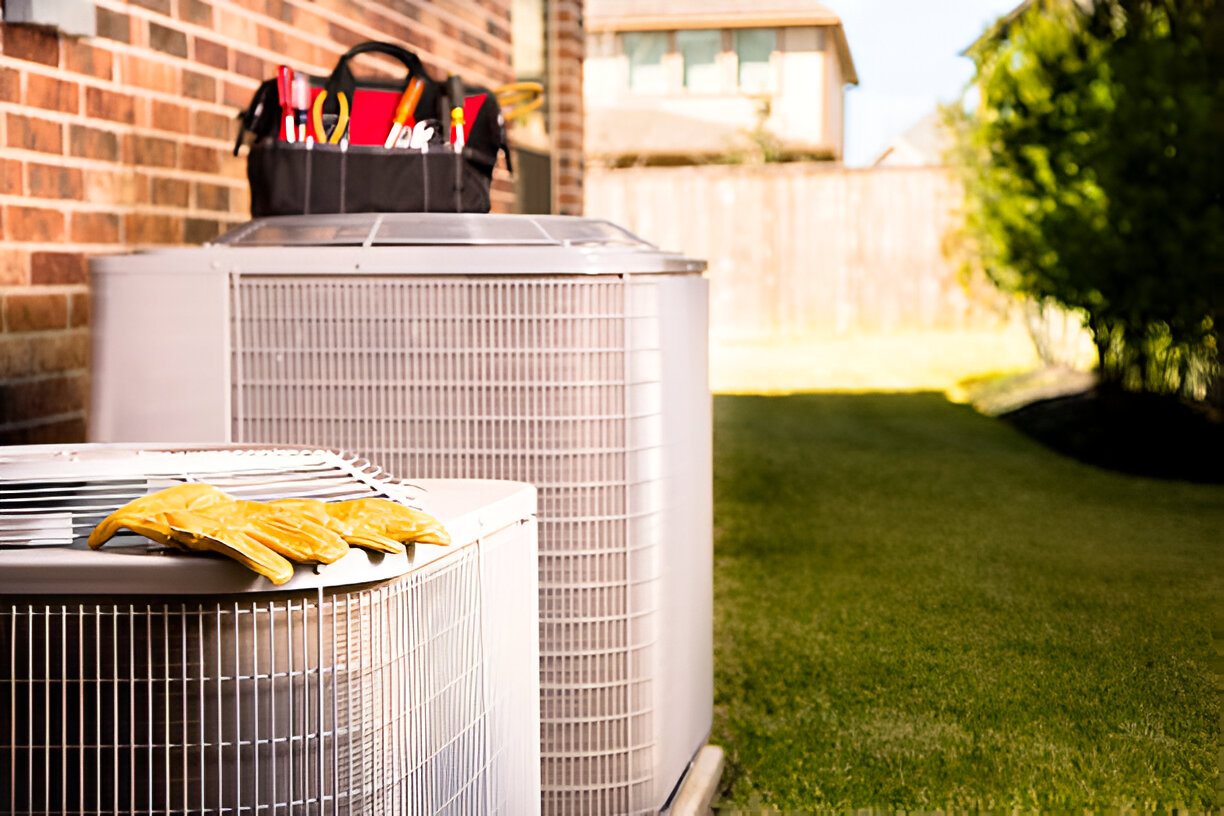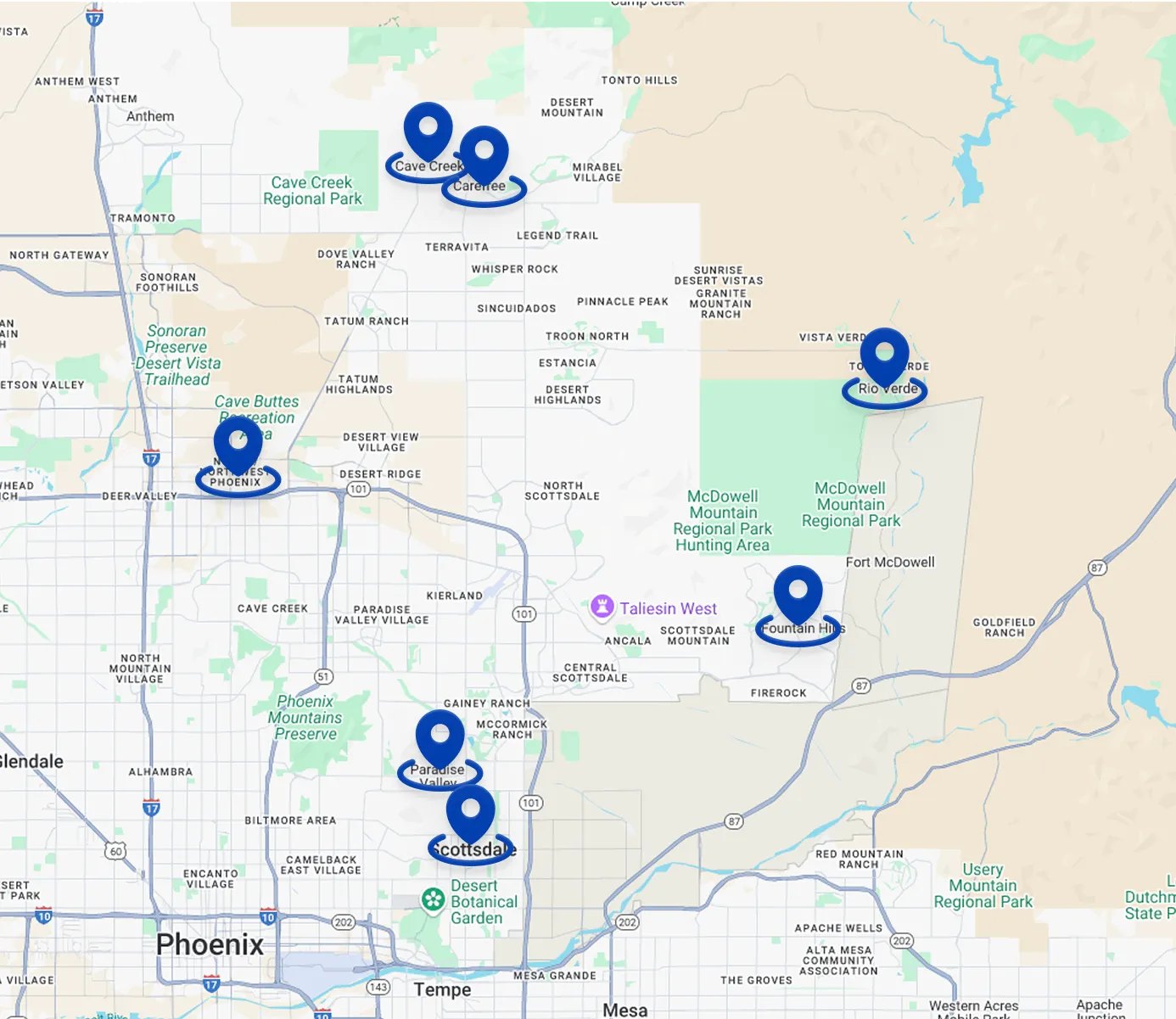HVAC Tune-up in Phoenix, AZ
A professional HVAC tune-up in Phoenix, AZ keeps your cooling and heating systems reliable when you need them most. With Phoenix summers regularly topping 100 degrees and seasonal dust and monsoon debris stressing equipment, routine tune-ups are essential to prevent breakdowns, lower energy use, and extend equipment life.

Why a seasonal HVAC tune-up matters in Phoenix
- High summer temperatures increase run-time and wear on air conditioners.
- Fine desert dust and pollen build up on coils, filters, and outdoor condensers, reducing efficiency.
- Monsoon season deposits debris and can cause restricted airflow or electrical exposure.
- Timely maintenance prevents emergency AC failures during peak demand and reduces repair costs over the long term.
Common HVAC tune-up issues in Phoenix homes
- Reduced cooling capacity caused by dirty coils or low refrigerant
- Increased energy bills from clogged filters and unlubricated moving parts
- Intermittent cycling or short-cycling due to thermostat or control issues
- Noisy operation from worn blower motors or loose components
- Safety risks from frayed wiring, corroded connections, or failed safety switches
Seasonal maintenance checklist
A comprehensive HVAC tune-up in Phoenix, AZ typically includes the following inspections and services:
- Inspection of system components: visual and operational check of indoor and outdoor units
- Refrigerant level and pressure checks: verify proper charge and look for leaks
- Evaporator and condenser coil cleaning: remove dust and buildup for better heat transfer
- Condensate drain inspection and cleaning: prevent clogs and water damage
- Air filter check and replacement: restore airflow and indoor air quality
- Blower assembly and motor inspection: clean, lubricate, and test motor function
- Thermostat and control calibration: ensure accurate temperature control and programming
- Electrical and safety checks: tighten connections, test capacitors, contactors, fuses, and safety switches
- Ductwork assessment: look for obvious leaks, disconnections, or insulation issues
- System performance test: measure temperature split, airflow, and overall cooling efficiency
Diagnostic approach and service process
Technicians follow a step-by-step process to diagnose and optimize system performance:
- Initial system run and symptom review to confirm owner observations.
- Safety lockout and power-off for safe inspection of electrical and mechanical components.
- Detailed checks of refrigerant pressures with gauges and temperature readings across coils.
- Cleaning of accessible coils and condenser fins, and clearing the area around the outdoor unit.
- Replacement of air filters and cleaning of the blower compartment to restore airflow.
- Calibration of thermostat and verification of control sequences.
- Final system test under load to verify correct operation and measure improvements.
- Documentation of findings, recommended repairs, and maintenance performed.
Technicians will explain findings in plain language and show any components that need future attention.
Typical duration and frequency
- Typical duration: most single-unit tune-ups take 60 to 90 minutes. Multi-unit homes or complex systems may require additional time.
- Frequency: annual tune-ups are recommended for most HVAC systems. In Phoenix, many homeowners benefit from a semiannual approach (spring and fall) — especially properties with heavy summer usage or older equipment.
Repairs and solutions commonly identified during tune-ups
- Coil cleaning or fin straightening to restore heat exchange efficiency
- Refrigerant leak detection and repair followed by recharge if a leak is found (note: refrigerant recharges without addressing leaks are temporary)
- Replacement of worn capacitors, contactors, belts, or motors to restore reliability
- Thermostat replacement or recalibration to eliminate temperature swings
- Duct sealing recommendations or minor repairs to reduce loss and improve comfort
Pricing and financing options
While specific pricing varies by system size, condition, and required repairs, financing options are commonly offered to help manage larger investments. Homeowners can often access flexible payment plans through third-party lenders that permit spreading the cost across monthly payments for approved applicants. Financing can make preventative maintenance and any recommended repairs more manageable without delaying necessary service.
Scheduling and same-day service
Same-day service options are commonly available in high-demand climates like Phoenix, especially during shoulder seasons when appointments are less congested. Availability depends on local provider capacity and seasonal demand. A scheduled tune-up during spring ensures your system is ready for the summer peak.
Frequently asked questions (FAQs)
Q: How do I know if my AC needs a tune-up now?
A: If you notice higher energy bills, reduced cooling, longer run times, unusual noises, frequent cycling, or visible dirt and debris around the outdoor unit, it is time for a tune-up.
Q: Will a tune-up include refrigerant recharge?
A: A tune-up includes checking refrigerant levels and pressures. If levels are low, the technician will recommend leak testing and repair before a recharge. Recharging without fixing a leak is temporary.
Q: Is a tune-up worth it for older systems?
A: Yes. A tune-up can improve efficiency, reduce the risk of failure, and extend the life of older equipment. It also identifies issues that might indicate replacement is more cost effective than repeated repairs.
Q: Can I prepare my home before the technician arrives?
A: Clear the area around the indoor unit and outdoor condenser, ensure access to panels, turn off pets, and note any symptoms or unusual behavior to report to the technician.
Q: Does a tune-up improve indoor air quality?
A: It can. Replacing filters, cleaning coils, and ensuring proper drain function all help reduce dust and microbial growth that affect indoor air quality.
Q: How soon should I schedule a tune-up before summer?
A: Spring is ideal. Scheduling before the heat arrives reduces the chance of mid-summer failures and gives technicians time to address any issues.
Final notes on benefits and maintenance tips
Regular HVAC tune-ups in Phoenix protect against extreme weather-driven failures, lower operating costs, and maintain comfort through long, hot summers and dusty conditions. Small homeowner actions like replacing filters regularly, keeping the outdoor unit clear of debris, and setting thermostats to sensible setpoints complement professional maintenance and preserve system performance. Regular tune-ups are an investment in reliability, safety, and peak efficiency for Phoenix homes.
Customer Testimonials
Hear directly from our customers about the quality, honesty, and care we bring to every job.










